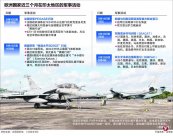(Washington Composite Electric) U.S. Democratic and Republican members call on President to Biden to issue administrative orders to strengthen the supervision of American companies and individuals' investment in China and other countries.
Including the Speaker of the House of Representatives Pelosi, Senate's major party leader Shumo and the Republican Senator Konon, on Tuesday (September 28), urged Biden to issue administrative orders. "When investing in foreign opponents, maintainOur national security and supply chain toughness. "
The US Congress is considering that legislation has given the US government's extensive power to prevent billions of dollars from flowing into China.The proposed legislative compulsory investors notify the government for any investment within the scope of new regulations, and the United States can use existing institutions to prevent investment or reduce risks.
If the official does not take action, the investment can continue.However, in the chip method approved in August, the proposal proposed by the two parties was deleted.Democratic Representatives Paskrell, Chairman of the House of Representatives Draomo, Senator Casey, and Republican Republican Fitz Patrick and Sparts said to Biden: "Our national security cannot wait."
China: Meiying maintains the stable global supply chain instead of picking China
They wrote: "When we give manufacturing capabilities and technical knowledge to foreign opponents, we are hurting our economy, our global competitiveness, American workers, industry and national security.Action, the scope and scale of these serious risks facing the country. "
The White House did not comment on this, but Liu Pengyu, a spokesman for the Chinese Embassy in the United States, said in response: "The statement about China's harm to the interests of American workers is completely wrong ... (the United States) should maintain the stability of the global industrial chain and supply chain, andIt's not picky China from time to time. "
Earlier this month, Harlell, a White House national security official, revealed that the Bayeng government has not yet made a final decision on the potential overseas investment mechanism that regulates the U.S. investment in China.
Haller emphasized that any measures for overseas investment in the United States must be strictly formulated to solve the loopholes of existing US institutions and specific national security risks.


